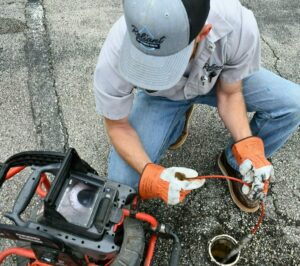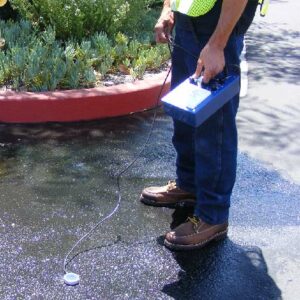Leak detection is one of the best ways to catch a plumbing emergency before it occurs. The leak may start out small, but overtime can cause serious damage. We have new leak detection technology that detects water leaks, gas leaks, and sewer leaks quickly. By catching it early, there is a better chance that the damage is reduced, saving money when it comes time to call a local plumbing company.
What is Leak Detection?
Leak detection is the process of locating a water leak, gas leak, or sewer leak through the use of different leak detection tools and techniques. Leak detection is a non-invasive way to locate the source of the leak, either by electromagnetism, sound waves, or other methods. Leak detection devices are applicable to commercial and residential leaks, so we can serve all of our clients with the best technology and highly trained plumbers.
If you have water pipes, gas pipes, sewer pipes, or any other pipes that carry liquid, there is a chance for a leak. This can include water pipes in your slab, walls, attic, or yard from sump pumps, pressure reducing valves, or any other water pipe in and around the home.
3 Ways We Perform Leak Detection Without Digging
Find Leaks using Sound without Breaking Ground
1st Approach: Imagine leaks making unique sounds or vibrations. Those escaping fluids, such as water leaks, gas leaks, or sewer leaks, generate distinct noises or vibrations that pin point the location of the pipe leak. This technique showcases a sensitive microphone to capture these audible cues plus pipe movement and identify any potential leaks.
- How it works: Specialized equipment! Reliant Plumbing is proud to use the 777-A Leak Detector. The super-sensitive microphone detects a wide range of water leak sounds, and converts them into electrical impulses. We use the tool to analyze the intensity and frequency of these sounds, and can precisely locate the source without resorting to more destructive measures.
- Why it’s good: Acoustic leak detection is a non-invasive solution, so no unnecessary digging, and swiftly pinpoints leaks in concealed or underground pipelines without the need for disruptive excavation.
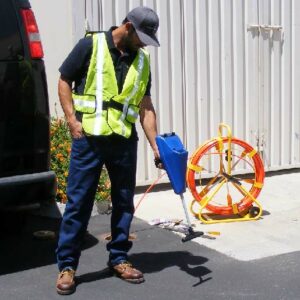
2nd Approach: We Perform Leak Identification using a special device called the 5600-SI pipe locator.
- How it works: The 5600-SI Pipe & Cable locator has a multi position antenna that uses electromagnetism to locate pipes deep within the ground. When the device emits the electromagnetic signal, it comes back as audio signals our plumbers use to determine the type of pipe, whether its gas piping, sewer piping, or water piping, and most importantly location.
- Benefits: By identifying where the lines are before digging, we are able to replace the pipe with the proper materials and size to get the building back up and running better than before!
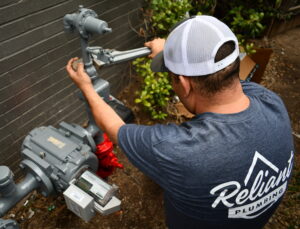
3rd Approach: Pressure Test for Gas Line Leaks
- How it works: A pressure test enables plumbers to find leaks by forcing air through a gas pipeline and monitoring for any changes in pressure that could indicate a gas leak. Pressure tests are still used for gas pipelines, but for water lines and sewer lines we can refer to the 1rst and 2nd approaches.
- Benefits: Gas line repairs can be especially dangerous, as most gas in gas lines is flammable. Reliant Plumbing uses air in gas pressure tests to avoid any dangerous malfunctions.
How do I know if I have a Leak?
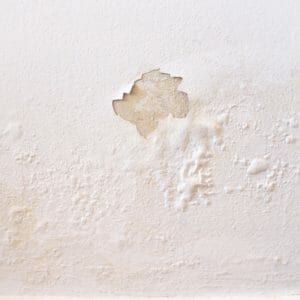
Visible Signs of a Water Leak:
Leak detection first starts with knowing you have a leak but sometimes the leaks are not always present to the naked eye. Some leaks are more visible than others, such as a water leak in the wall that warps the drywall. Other water leak examples include soft wet spots in the yard, water spots on the floor, and drips from the ceiling.
If the drip is coming from near the air conditioner, we can check to see if the drain line is the reason. Otherwise, this can become a more complicated HVAC problem.
Non-visible Signs of a Water Leak:
One sign is an increase in water usage on the bill but no change in daily water usage, just ask this Austin couple who came back from vacation to a 3,000$ water bill. Additionally, listen for running water in the walls, floors, or ceilings. When looking, sometimes leaks present themselves as musty odors or mold spots. If a house pet is attracted to a certain spot on the floor, it could be a hot water leak possibly caused by a leak in the water heater or the hot water line.
Visible Signs of a Sewer Leak:
Has the grass gotten greener on the other side… of the sewer line?
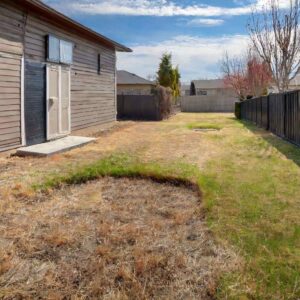
- Strangely enough, grass will become more lush in concentrated areas. However, the grass will eventually die from the unhealthy bacteria in the water, despite the good bacteria.
- Cracks in your home’s walls or foundation could indicate a sewer pipe has shifted. Horizontal cracks could be due to the soil shifting or water pipes causing unnatural pressure on the foundation. Cracks in the foundation or walls can shift pipes causing them to leak.
- Rats can also become attracted to smells that leach from broken sewer pipes.
- Check for discolored and/or foul-smelling water. If the color and odor are persistent in more than one fixture, contact a local and reliable plumbing company like Reliant Plumbing.
Non-Visible Signs of a Sewer Leak:
Listen for running water sounds in the home from the walls, floors, and ceiling. Turn off all fixtures and if the sound still persists, a plumbing company should be called.
Odors can also persist from fixtures and faucets when a sewer line is leaking. In combination with odor sometimes the water will be discolored orange or red. This is an indicator that rust is present and a sewer pipe may be deteriorating.
Indications of a Gas Leak:
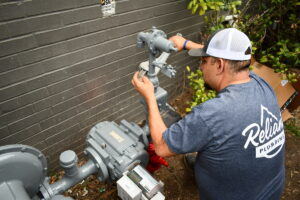
Gas leaks are usually silent and potentially dangerous. If one or more of these signs are present, shut off your gas and call an emergency plumbing company like Reliant Plumbing.
- Foul Odor: Gas manufacturers add an ingredient called Mercaptan to give the gas a distinct and offensive smell.
- Hissing Noise: Gas line leaks can be pretty noisy despite how far they are underground. A newly presenting hissing noise could be a sign of a gas leak.
- Gas Bill has Increased: The gas bill will be drastically higher than previous months despite the usage of gas remaining the same.
- Insects and Microorganisms: Bugs love the smell of gas! Look for areas of dead grass, and if an abnormal amount of fungal growth and insects are present, then this is a pretty good sign of a gas leak.
- Mist: Gas is denser than air. Your vision may look warped in an area with a gas leak.

